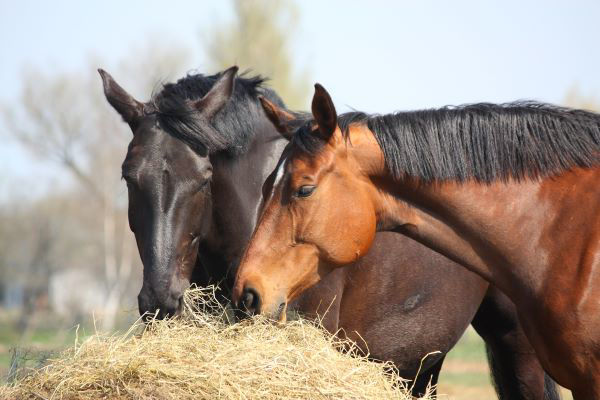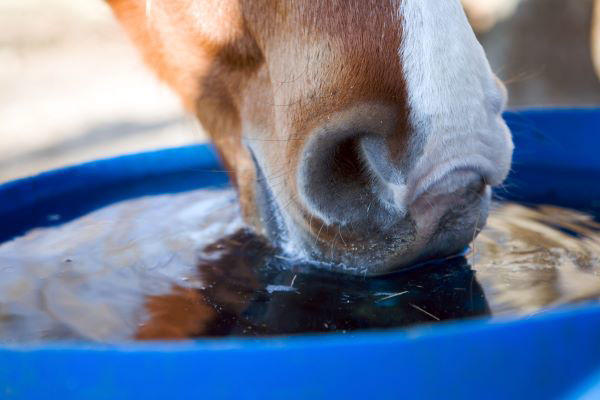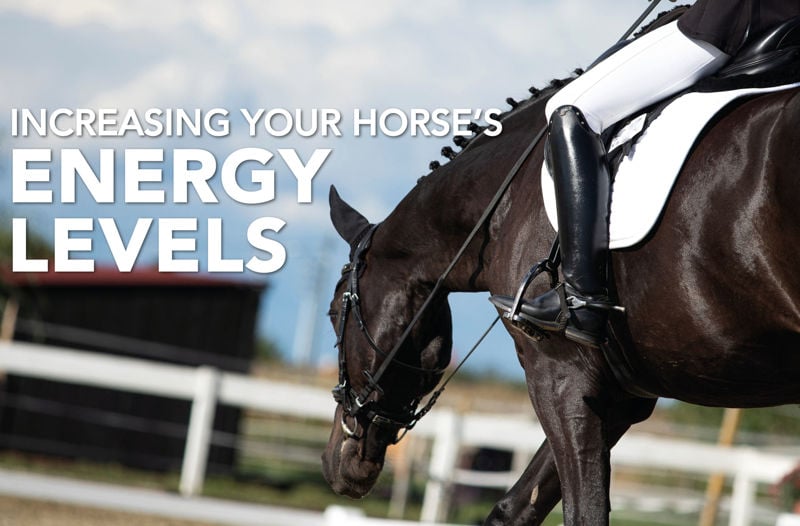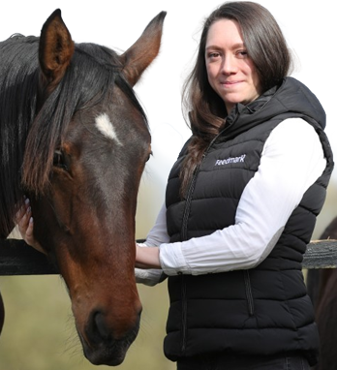Introduction
Not all horses have naturally abundant energy levels, and some may lack the exuberance that is required for certain disciplines and movements. When working a ‘lazy’ horse, it can feel like you are working harder than they are. So what can you do to help boost their natural energy levels?
Where does your horse's energy come from?
Horses have two energy systems, aerobic and anaerobic. Energy is a result of burning Adenosine Triphosphate (ATP), a nucleotide that provides energy to the body systems.
· Aerobic activity requires oxygen, and this energy system is used for long lasting energy.
· Anaerobic energy does not require oxygen and is used for short, intense bursts of activity.
Horses require energy for work, but it is also vital for normal daily activity and this energy is taken in from the calories that they eat. The amount of energy a horse requires is based on that individual’s workload and body condition and energy balance must be maintained. Energy balance is when a horse takes in as much energy (calories) as it is expending. Horses in a negative energy balance are taking in less energy (calories) than is being expended through metabolism and this will lead to weight loss. Horses in a positive energy balance are taking in more energy (calories) than is required for maintenance and this leads to unwanted weight gain.
Fuelling your horse
Fibre is what fuels the horse. It is fermented in the hindgut where fatty acids are released, and this is what the horse uses as an energy source. Whilst forage and fibre are key for energy production, they don’t provide the necessary vitamins and minerals that the horse requires, so it is important to ensure you are feeding a balanced diet that contains a broad spectrum of vitamins and minerals alongside your horse’s forage.

Forage and fibre are key for energy production.
Nutrition for better energy levels
Vitamins and minerals don’t supply the horse with energy, but they are vital for energy systems such as transporting energy, energy metabolism, maintaining hydration, and supporting muscle health. Minerals that are essential for energy production are:
· Iron - an essential element of red blood cells which are responsible for oxygen transportation.
· Copper - necessary for effective absorption and utilisation of Iron.
Vitamins also have an important role in energy production:
· Vitamins B12 (Folate) and B9 (Folic acid) support red blood cell formation.
· Other B vitamins and Choline are required for energy and cell metabolism.
Hydration helps
The correct balance of electrolytes is required for muscle function and optimal performance. Electrolytes are not well replenished through the horse’s diet and therefore must be supplemented to ensure adequate levels are provided.

The correct balance of electrolytes will support your horses muscle function.
The key electrolytes are:
· Sodium – important for maintaining optimal water balance in cells.
· Chloride – maintains balance of body fluid.
· Magnesium – required for cellular function, nerve conduction and muscle contraction.
· Potassium – supports the functioning of cells, nerves, and muscles.
· Calcium - used for contraction of muscles and transmission of nerve impulses.
Summary:
If your horse is lacking energy, it’s important to evaluate their diet and consider adjustments that can help support better energy levels. Feeding ad-lib forage and providing a balanced diet with key nutrients such as Iron, Copper, and B vitamins can help support blood oxygen levels and energy metabolism. Additionally, ensuring your horse's electrolytes balance is optimal, especially during training and competition, will help maintain their energy levels and support peak performance.
If you have any questions, or would like any further advice, please do not hesitate to contact our Registered Nutritionist, Stephanie Hyland, on 0880 585525, email [email protected], or drop us a message on social media.



